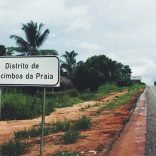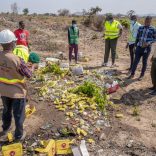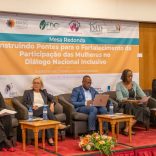Mozambique: Five arrested for theft of medicines in Manica - Watch
Special report: Evolution of the Cabo Delgado war – By Joseph Hanlon

File photo: Lusa
Notes on the evolution of the Cabo Delgado war:
Although the global should not be forgotten, the local is most important
An organised invasion of a Cabo Delgado ruby mine last weekend (22-23 February) by up to 2000 artisanal miners points to the broad base of the growing tensions and violence in Cabo Delgado. The ruby mine north of Montepuez has come to symbolise the conflict between local people and natural resource companies and Mozambican elites linked to those companies. Mozambique Ruby Mining (MRM) is 75% owned by Gemfields and 25% by Mwiriti, which is controlled by Raimundo Pachinuapa, a liberation war commander now on the Frelimo Political Commission. MRM is chaired by Samora Machel Jr. Pachinuapa’s son Raime is MRM’s director of corporate affairs.
In 2016 police evicted thousands of artisanal miners and farmers from the 340 square kilometer area that had been given to Montepuez Ruby Mining (MRM). The entire value chain was broken and thousands lost their income – traders, suppliers and farmers as well as the actual miners. In January 2019 Gemfields agreed a US$8.3 million out-of-court settlement to resolve 273 claims of death, beatings and other human rights violations. The evictions, repression and economic hardship fuelled radicalisation across Cabo Delgado.
Last week a rumour was circulated, probably by gemstone traders, that the President had announced that on Saturday the Maningue Nice mine on MRM land would be reopened to local miners. MRM claims that by Friday there were 2000 artisanal miners in neighbouring villages, and that in the invasion on Saturday mine security guards were attacked and injured. MRM has called on the government to protect the MRM concession from the informal miners it expelled.
There had been an invasion of Maningue Nice in the first week of February, but MRM successfully evicted the informal miners. Last weekend’s invasion was larger and more organised.
Meanwhile 13 people were killed last week in attacks by Islamist insurgents in three districts, including five people beheaded in Imbada village, Meluco district, in a growing armed conflict. (Carta de Moçambique, 26 Feb)
A set of notes on the evolution of this war are here: Special report on the evolution of the Cabo Delgado war
Our key point is to show the very complex linkages behind the Islamist insurgency, and to argue that the factors behind the insurgency and the MRM mine invasion are similar. Setting out the origins and evolution of the war, we show:
+ The antecedents of this war go back decades. and that there are a very large number of external and internal actors and contexts.
+ Externally, Cabo Delgado has been a playground for a wide range of religious missionaries, global natural resource companies, and traders in legal and illegal commodities. World Bank and IMF policies have set the development strategy.
+ Internally, poverty and inequality are growing. Greed and corruption have exacerbated the inequalities and caused a growing discontent, especially from marginalised young people.
+ External and internal actors work together. The local elite (internal) works with the natural resource companies and illegal traders (external). But at a lower level some people respond to the crisis of poverty and inequality by looking to religious leaders and sects for an explanation and solution, while religious leaders (both internal and external) try to interpret their doctrines and teachings as a solution to these crises, in order to recruit followers. Religion is presented as an answer to a development crisis.
+ The distrust of local elites is greater that many realise and there is a history of violence, from cholera riots two decades ago to last weekend’s mass invasion of ruby mines. Following this history, it is less surprising that marginalised young people will join a violent group pledged to redress inequality
This leads to the conclusion that the growing civil war does not have a military solution. Civil war is fed by grievances, which must be resolved to end support for insurgents. But external factors must also be controlled to end the war, and it needs to be remembered that external factors are not just foreign Islamic militants, but also natural resource companies and illegal traders.
The local is most important, but the global should not be forgotten.
By Joseph Hanlon












Leave a Reply
Be the First to Comment!
You must be logged in to post a comment.
You must be logged in to post a comment.